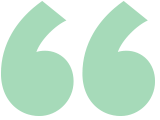Following the global pandemic, how we live and work will never be the same. But what exactly will the new working life look like? A new survey shines a light on the post-Covid-19 workplace.
The seismic shift in our working lives is reflected in the Banner Post-COVID-19 Workplace Market Report.
The report, from the UK’s largest workplace supplies and services company, analyses all the company’s vast reams of sales data from 2020 to identify changing patterns in UK organisations’ office behaviour.
It shows a 2,000% increase in headsets, and laptop sales outperforming desktop computers by 512% as people flocked to work from home. Monitors make it into the top selling list, following employer observations that dual monitors increase productivity by up to 25%.
Meanwhile, companies driven to better ventilate their offices prompted a 622% rise in doorstop sales.
The battle for SMEs to create Covid-19-secure workspaces in between lockdowns was clear. Sales of general cleaning products rose by 987% and demand for facemasks and hand sanitiser shot up by 3,626%. The use of disposable items such as cups and cutlery also went up by 71%, as employers strove to avoid cross-contamination.
When it comes to providing the right tech for employees, without breaking the bank, the report highlights that the pandemic has turbocharged the rise of the subscription economy – such as for laser printer services – which is projected to rise by 3600% in the next five years.
The report not only charts the dramatic impact of Covid-19 on the UK’s workplace supplies and services, but identifies trends which Banner’s experts predict are here to stay for the long-term.
The trends are:
- Flexi-working and focus on worker well-being
- Customer drive for greater consolidation of services
- Cleaning and infection control at the heart of business preparedness strategy

Flexi-Working and the Focus on Worker Well-Being
This trend was emerging prior to the Coronavirus pandemic, but has been radically accelerated, and its permanent adoption expedited. Its impact extends beyond laptops and headsets. Banner predicts a decline in larger inner-city business complexes in favour of smaller satellite operations, and a blend of office and home working becoming the norm for most businesses.
Employee well-being is part of this flexi-working trend and is now higher on the business agenda than ever before. This is reflected in Banner’s top selling products list, with ergonomics absolutely central:
- Chairs
- Desks
- Monitor arms
- Monitor risers
- Laptop risers
- Headsets
Banner also predicts that this worker-centric trend will spearhead a leasing revolution. Companies, challenged by the ‘upgrade culture’ of employees, will increase the use of leasing models to provide best in class equipment without denting the bottom line.
Customer Drive for Greater Consolidation of Services
The second trend identified in the Post-COVID-19 Workplace Market Report demonstrates that more than ever, businesses and organisations want a ‘one order, one invoice, one delivery’ approach to receiving goods from suppliers. Aside from the efficiency and economies of scale this delivers, this trend is also driven by environmental concerns and corporate carbon reduction goals. Accelerating this trend was the need to ring-fence vital product supplies to manage the pandemic and possible Brexit disruption. Finally, companies continue to look to reduce the number of orders and deliveries to reduce the risk of contamination.
Banner also highlights the trend for multiuse and more concentrated forms of products, so organisations buy less and store less, motivated by a combination of environmental and practical factors.

Sales of general cleaning products rose by 987% and demand for facemasks and hand sanitiser shot up by 3,626%.
Cleaning as Central to Business Preparedness Strategy
The third trend Banner has identified is the permanent impact the pandemic will have on business risk strategy. Many organisations were ill-prepared and ill-equipped to effectively respond to the crisis and they cannot afford to be in that position again. The need to create virus-secure workplaces has changed business behaviour and put cleanliness centre stage.
Frequency of office cleaning has increased from weekly, to 3 or 4 times a day. Communal touchpoints went from weekly cleaning to being cleaned after every single use. From a product perspective, the buyers’ focus will be on refills and multi-use cleaning products, e.g., those which can be used as a hand sanitiser as well as cleaning surfaces such as monitors, work surfaces and office equipment.
Products will also be used to drive behavioural change. For example: antibacterial bin bags, touch-free bins, and aerosol-based products for hands-free surface decontamination in one hour. In educational settings, standalone hand washing stations with foot operated taps help to prevent the congregation of numbers of school children in small indoor spaces.
Craig Varey, Managing Director at Banner, comments: “As a leading fulfilment partner to public and private sectors, Banner is uniquely placed to see the shape of reactions across businesses, sectors and industries, and identify the trends that signify a permanent shift in the way we are working. The turbulence of 2020 brought some significant trends in workplace behaviour and management to the fore, which we expect to impact the products we provide over the coming year. Interestingly we had seen these trends emerging prior to the Coronavirus pandemic, but like Covid’s impact on everything, the effect on these developments has been unprecedented.”






